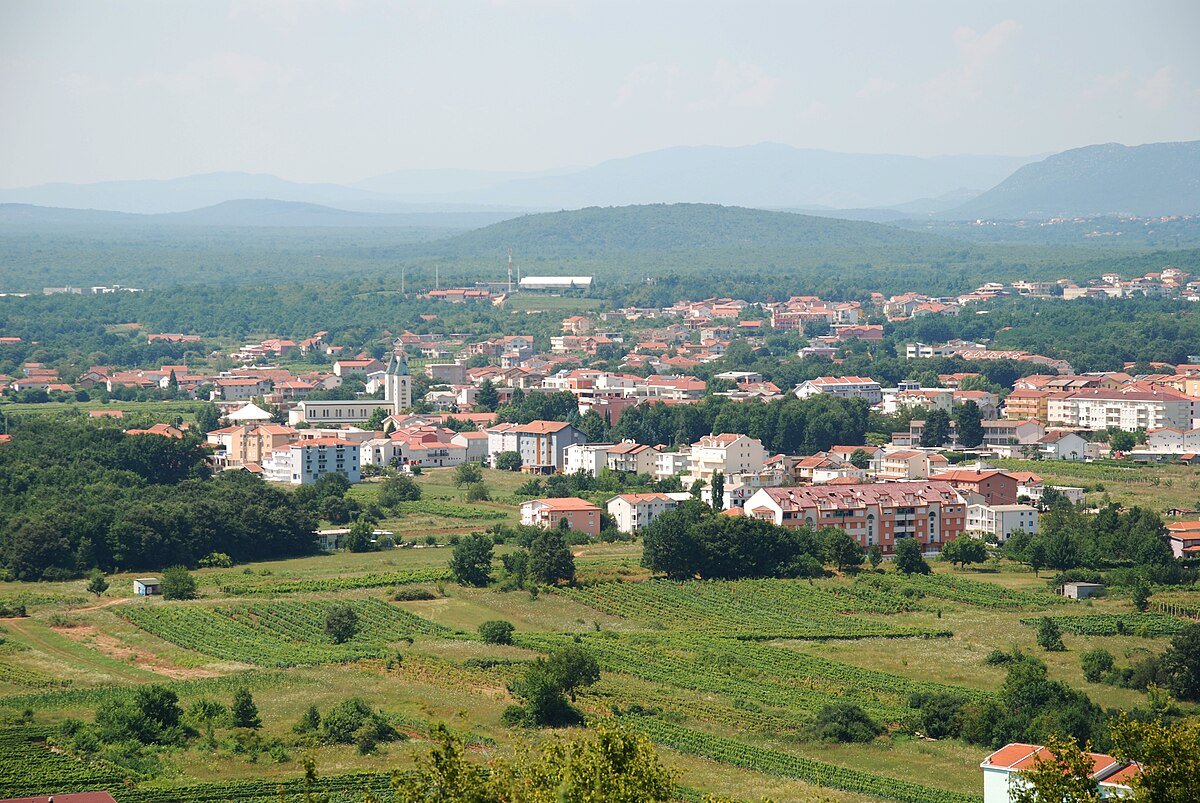Pope Francis Issues Statement Regarding the Decades-Long History of Devotion at Medjugorje, Site of Alleged Apparitions of the Virgin Mary
A statue of the Virgin Mary looks down upon Medjugorje from Apparition Hill, the site at which her first appearances in the village were allegedly witnessed (Wikimedia Commons).
Pope Francis announced his approval of the religious devotions that have been occurring for more than four decades in Medjugorje, a rural town in southern Bosnia and Herzegovina, in late August 2024. The devotions began in June 1981, when six children claimed to have experienced visions of the Virgin Mary (the Mother of God in the Catholic faith) in the village. Since then, Catholics from around the world have made pilgrimages to Medjugorje amid debates over what fruits may come from belief in such allegations, whether grounded in reality or not.
While the Pope, through the Vatican Dicastery, avoided making any conclusive statement regarding the reality behind the supernatural phenomenon, he justified his approval by pointing out that both the pilgrimage process and the wonder inspired by the concept of the miraculous have demonstrated their capacity to renew and deepen Catholic faith on an international scale. He held that the collective belief in the presence of Mary in Medjugorje possesses the power to inspire “abundant conversions,” “a more intense practice of prayer,” and even “reconciliations between spouses.”
The significance of such a statement lies within the context of the history and international influence of the papacy. As of 2022, the estimated number of Catholics in the world was 1.36 billion, nearly 20 percent of the global population. For these individuals, the Pope is the official leader of their faith. Over the centuries, a diversity of cultures, perspectives, beliefs, and practices have characterized the religion; the result has been a constant element of tension amongst believers. This tension has often manifested in differing opinions regarding the Pope’s decisions.
Behind those decisions is a figure who holds the power to interpret divine truths, direct religious leaders from every corner of the globe, and participate in diplomatic relations with nearly 200 different countries. His presence spans from X to the Apostolic Palace. So when the Pope makes a statement regarding the morality of sexual orientation, for instance, or the value of the supernatural, it generally has very real and very widespread consequences.
In the case of the Medjugorje devotions, Catholics around the world generally recognized the Pope’s decision as the conclusion to debates over the significance of and meaning behind the alleged apparitions. There is no doubt that such debates will continue, but as of late August, more than a billion Catholics were provided with an official—albeit somewhat incomplete—answer.

